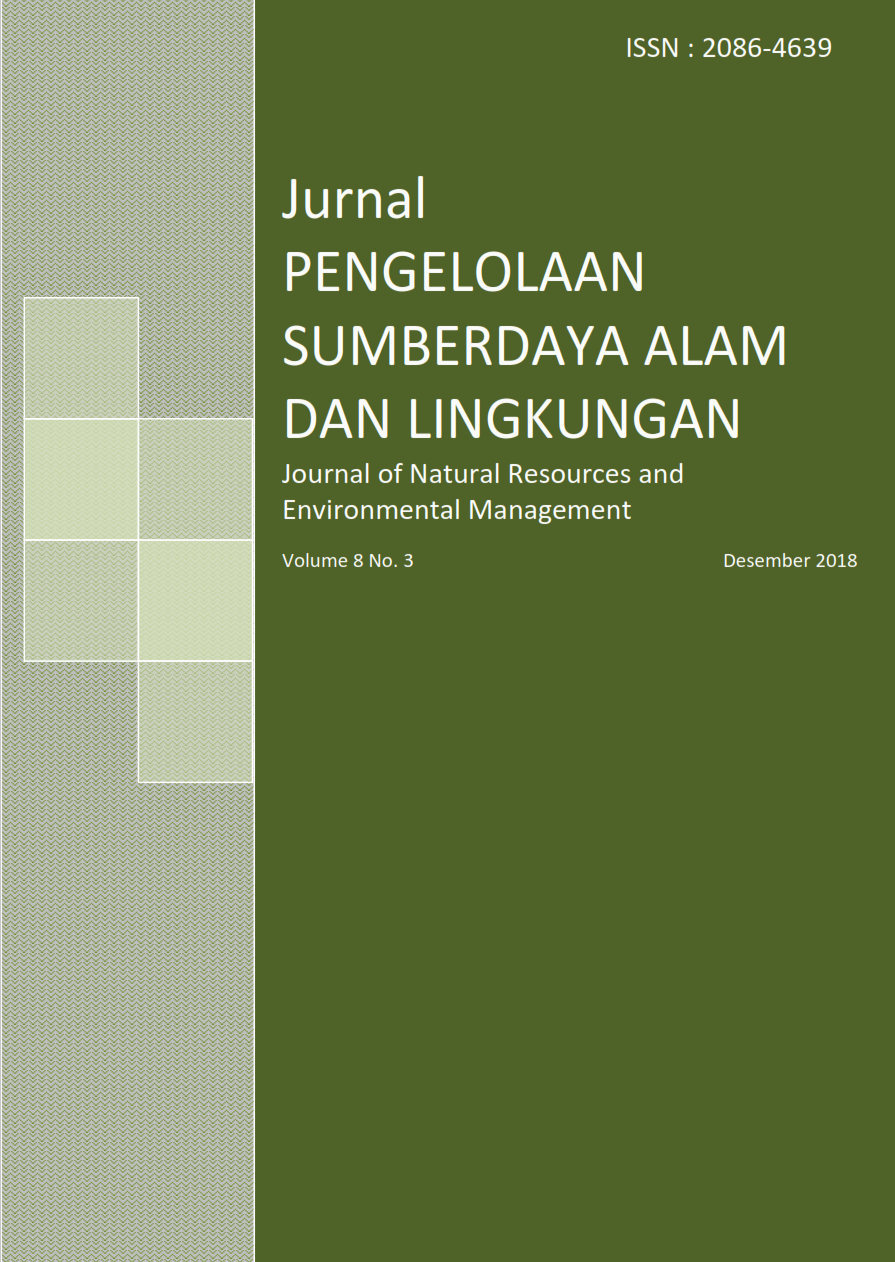Faktor Internal yang Memengaruhi Efektivitas Kinerja Polisi Kehutanan dalam Penanganan Gangguan Kawasan di Taman Nasional Gunung Gede Pangrango
Abstract
An effective conservation area is determined by management effectiveness index 70% up (good category). Forest area disruption in the national park is generallycaused by anthropogenic factor. Forest Ranger is one of the significant factors in controlling forest area disruption. Therefore, the purpose of this research is to analyze the performance of forest ranger in handling forest area disruption in Gunung Gede Pangrango National Park (GGPNP). Data were collected by, field observations, and structured interviews using questionnaires. Quantitative data inquiries were done through survey method to all Forest Rangers in GGPNP. The performance of Forest Rangers in GGNP was in medium level with score 21.3. There were 26% of respondents in high level in average (23.1), 68% of respondents in moderate level (20.4), and only 6% of respondents in low level (13.30). The performance of forest ranger in controlling forest area disruption is mainly affected by attitude and motivation.
Authors
HaerullahM. (2018) “Faktor Internal yang Memengaruhi Efektivitas Kinerja Polisi Kehutanan dalam Penanganan Gangguan Kawasan di Taman Nasional Gunung Gede Pangrango”, Jurnal Pengelolaan Sumberdaya Alam dan Lingkungan (Journal of Natural Resources and Environmental Management). Bogor, ID, 8(3), pp. 347-354. doi: 10.29244/jpsl.8.3.347-354.
Authors who publish with this journal agree to the following terms:
- Authors retain copyright and grant the journal right of first publication with the work simultaneously licensed under a Creative Commons Attribution License that allows others to share the work with an acknowledgement of the work's authorship and initial publication in this journal.
- Authors are able to enter into separate, additional contractual arrangements for the non-exclusive distribution of the journal's published version of the work (e.g., post it to an institutional repository or publish it in a book), with an acknowledgement of its initial publication in this journal.
- Authors are permitted and encouraged to post their work online (e.g., in institutional repositories or on their website) prior to and during the submission process, as it can lead to productive exchanges, as well as earlier and greater citation of published work (See The Effect of Open Access).






